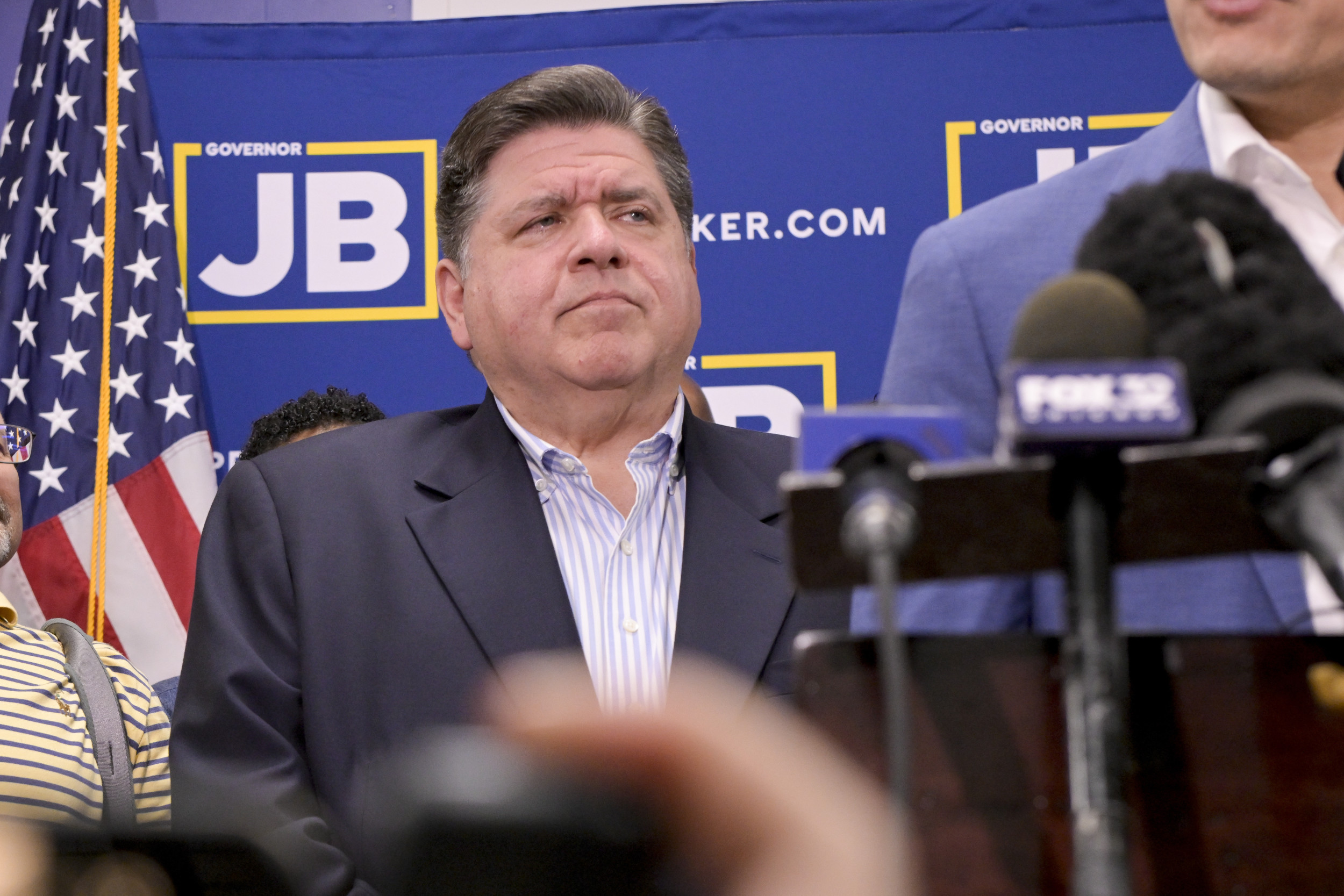Will Texas Democrats Face FBI Arrests? JB Pritzker Weighs In!

Understanding the Dynamics of Illinois Politics: A Deep Dive
The political landscape of Illinois is a complex tapestry woven from a rich history, diverse populations, and a multitude of interests. As one of the most populous states in the U.S., Illinois plays a significant role in national politics. This article provides an in-depth analysis of the current political environment in Illinois, including key players, legislative trends, and the challenges faced by its government. Readers will gain insight into how local dynamics influence broader political narratives, and what this means for the future of governance in the state.
The Historical Context of Illinois Politics
Illinois has a storied political history that reflects broader national trends. From the days of Abraham Lincoln, who began his political career in Illinois, to the present-day struggles with corruption and political reform, the state has seen it all. The Democratic Party has held a strong grip on power in Illinois for decades, particularly in urban areas like Chicago.
However, the political landscape is not static. Illinois has a significant Republican presence, especially in suburban and rural areas. These dynamics create a continual push and pull between the two parties, influencing everything from local policies to state-wide legislation.
Key Players in Illinois Government
The current political environment in Illinois is shaped by influential leaders who make crucial decisions affecting the state. Among them, Governor J.B. Pritzker has been a central figure since his election in 2018. A member of the Democratic Party, Pritzker has focused on progressive issues such as social equity, education, and healthcare reform.
On the other side of the aisle, Republican leaders like State Representative Jim Durkin and Illinois Senate Minority Leader Dan McConchie play critical roles in representing their constituents while challenging the Democratic majority. Their perspectives are vital in shaping debates around fiscal responsibility and public safety.
Legislative Trends and Recent Developments
In recent years, Illinois has seen significant legislative activity across various sectors. The state has made strides in areas such as:
- Healthcare Reform: Illinois has expanded Medicaid under the Affordable Care Act, which has significantly increased access to healthcare for low-income residents.
- Education Policy: The state has invested in education funding reforms aimed at addressing disparities between wealthier and poorer school districts.
- Criminal Justice Reform: There have been pushes for reforms aimed at reducing incarceration rates and addressing systemic racism within the justice system.
These legislative trends reflect a broader commitment to progressive policies, though they are often met with resistance from conservative factions within the state. The balance between reform and traditional values continues to be a heated topic in Illinois politics.
The Impact of Local Issues on State Politics
Local issues frequently dominate political discourse in Illinois. For instance, debates surrounding taxation, infrastructure, and public safety resonate differently in urban versus rural settings. Chicago’s high property taxes and crime rates are focal points for many Democrats and Republicans alike, shaping their respective platforms and strategies.
Moreover, the recent COVID-19 pandemic has brought to light the strengths and weaknesses of Illinois's public health infrastructure. This has spurred discussions about funding for health services, emergency preparedness, and economic recovery plans.
Challenges Facing Illinois Governance
Illinois faces numerous challenges that complicate its governance. Among these are:
- Budgetary Issues: The state has struggled with persistent budget deficits, leading to debates over taxation and spending priorities.
- Corruption and Transparency: Illinois has a long history of political corruption, which undermines public trust in government and complicates governance.
- Social Inequality: Disparities in wealth and opportunity continue to create tension between different regions and demographics within the state.
Addressing these challenges requires innovative solutions and a willingness to engage in bipartisan dialogue. The future of Illinois governance hinges on the ability of its leaders to navigate these issues effectively.
Looking Ahead: The Future of Illinois Politics
As Illinois moves forward, the political landscape will likely continue to evolve. Key factors to watch include:
- 2024 Elections: As the presidential election approaches, Illinois will be a crucial battleground state, influencing national outcomes.
- Demographic Shifts: Changes in population dynamics, particularly in suburban areas, may affect voting patterns and party strategies.
- Public Sentiment: The priorities of Illinois residents will play a significant role in shaping future policies and elections.
Ultimately, the ability of leaders to respond to the needs of their constituents will shape Illinois's path forward. The engagement of citizens in the political process will be critical in driving meaningful change.
Frequently Asked Questions
What are the main political parties in Illinois?
The two main political parties in Illinois are the Democratic Party and the Republican Party. The Democratic Party has held a majority in urban areas like Chicago, while the Republican Party has a significant presence in rural and suburban regions.
Who is the current governor of Illinois?
The current governor of Illinois is J.B. Pritzker, a member of the Democratic Party, who was elected in 2018. He has focused on progressive policies such as healthcare reform and education funding.
What are some key issues facing Illinois today?
Illinois faces several key issues, including budgetary deficits, corruption and transparency, and social inequality. These challenges complicate governance and require innovative solutions.
How does local governance impact state politics in Illinois?
Local governance significantly impacts state politics in Illinois, as issues such as taxation, infrastructure, and public safety resonate differently across urban, suburban, and rural areas, influencing political platforms and electoral outcomes.
As Illinois navigates its political future, the interplay of local concerns, state governance, and national trends will continue to shape its trajectory. Engaging in the political process and staying informed about local and state issues are essential for residents who wish to influence the future of their communities. What are your thoughts on the current state of politics in Illinois? #IllinoisPolitics #PublicPolicy #StateGovernance
Published: 2025-08-07 02:23:12 | Category: Trump GNEWS Search



